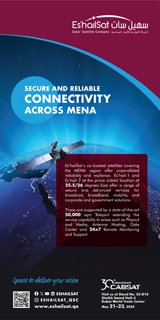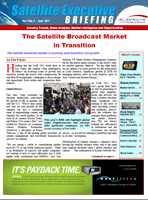Global Satellite Payloads Market Reaches $10.98-Billion in 2017
Dublin, Ireland, July 23, 2018 -- The Global Satellite Payloads Market accounted for $10.98 billion in 2017 and is expected to reach $26.51 billion by 2026 growing at a CAGR of 10.3%.
According to a recent report released by Research and Markets, rapid growth in hosted payloads, satellite miniaturization and major innovations in communication & navigation applications are some factors boosting the market growth. However, high expenditure on development is a major restraint hampering the market. Moreover, cost reduction in satellite and exposure of Over-The-Top platform in television industry will provide significant opportunities for the market growth over the forecast period.
Based on the orbit type, the LEO (low earth orbit) segment is expected to lead the market, due to its wide variety of applications in earth observation, remote sensing, and mobile & telecommunication services. Every minute details of the earth surface can be observed through these satellites and that have boosted the importance. With low-risk entry to orbit, practical space quality, productive in-orbit data, and mission survival capability are the additional add on’s with these payloads. In many LEO and Geostationary Equatorial Orbit (GEO), hosted payload approach has been widely used.
In terms of geography, North America is expected to be the largest and the fastest growing market during the forecast period, owing to the presence of major key players and rising government investments on space technologies.
Some of the key players covered in the Satellite Payloads Market include SSL, Space Exploration Technologies Corporation, Viasat Inc., Boeing Company, Cobham PLC Harris Corporation, Harris Corporation, Intelsat General Corporation, Lockheed Martin Corporation, Thales Group, Raytheon Company, Mitsubishi Electric Corporation, jsat International Inc., Northrop Grumman Corporation, Orbital ATK, Inc., Pace Exploration Technologies Corp., Swedish Space Corporation, UTC Aerospace Systems and Airbus Group.





